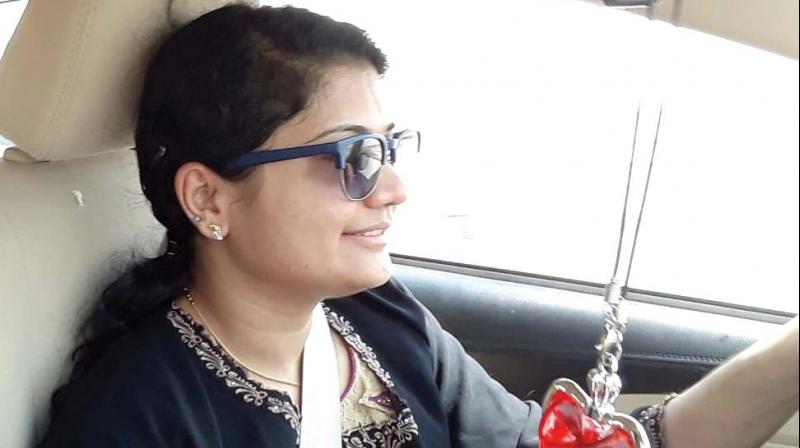Happiness of sitting behind wheels

On June 27, Pathanamthitta Kumbazha native Saramma Thomas aka Somy Jiji, her husband Mathew P. Thomas and their son Aidan went for a trip around the city centre of Riyadh. The roads were the same, and the car was the same, but one thing was different; unlike the last 10 yea rs, it was Jiji who was driving the car.
Somy Jiji, who is a staff nurse at the King Abdulaziz Naval Base Military Hospital in Jubail, joined hundreds of women in driving around the Kingdom with a Saudi Arabian driving license.
She is the first Indian woman to get the driving license issued by the government since its historical decision to lift the ban on women driving in the country.
“Better late than never,” say Jiji and her husband Mathew when asked about the historical decision. “I have a driving license in India and used to drive there. But when we heard about the King’s decision to lift the ban, my husband asked me if I wanted to apply for the license. He was very confident in me and said I would clear the test easily.” Jiji says, unlike our methods, the driving tests there are more systematic and she had to pass a parallel parking test. She now drives the Toyota Yaris to her workplace. “Driving here is easier than driving in Kerala. People are more law abiding and most of the roads are one-ways, which make it a lot easier,” she says, adding that driving gives her a lot of confidence and makes her more independent. Jiji has been driving for many years but always dreamed of getting a foreign license and driving in Saudi. Matthew says, “Driving institutes were already active for women since King Salman’s announcement last year on lifting the ban. Saudi women who have had licenses earned from GCC countries and foreign women living in Saudi who already had licenses in their home countries were waiting for the day eagerly”.
It is expected that the new policy would help the economy by increasing women’s participation in the workplace. Many working Saudi women spend much of their salaries on drivers or must be driven to work by male relatives. The royal decree, signed by King Salman, said traffic laws would be amended to issue licenses “to men and women alike”.

